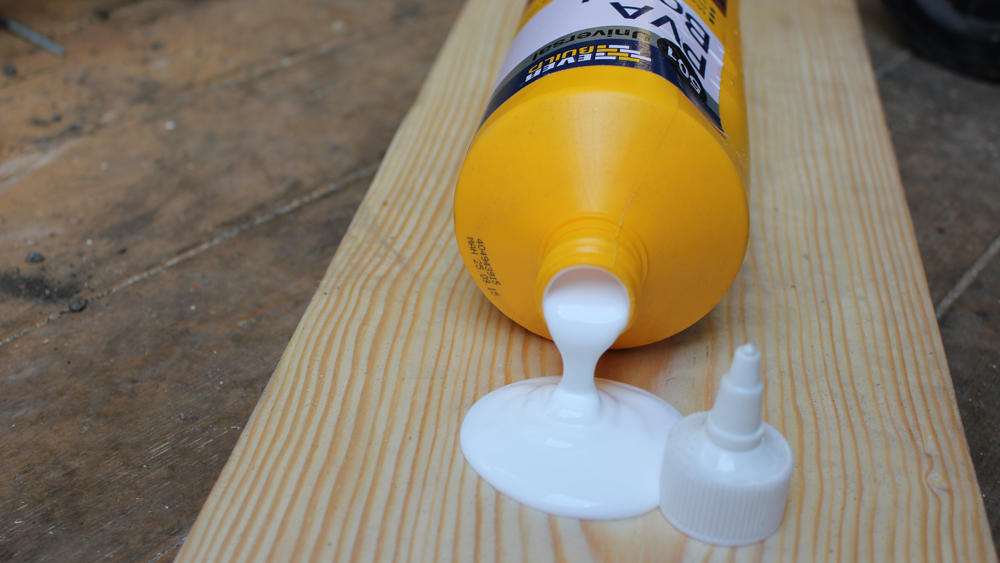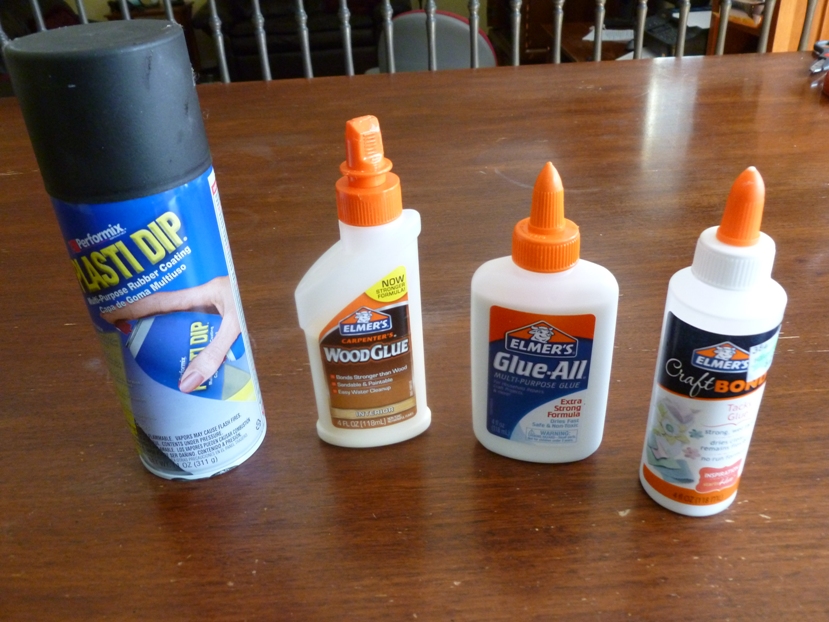Curious to know if you can use wood glue as a sealer? Well, let me break it down for you in a fun and engaging way!
Picture this: you’re working on a craft project or repairing a wooden piece, and you run out of sealer. Your first thought might be, “Hey, can I use wood glue instead?” It’s a valid question, and today, we’re going to explore if wood glue can do the trick!
So, grab your tool belt and join me as we dive into the world of wood glue and its potential as a sealer. Let’s find out if your crafty shortcut can save the day or leave you sticking around for disappointment!
1. Clean and prepare the surface.
2. Apply an even layer of wood glue with a brush or roller.
3. Allow the glue to dry completely.
4. Sand the surface lightly to smooth it out.
5. Apply multiple coats for added protection.
Remember to test on a small area first to ensure compatibility with your specific project.

Can Wood Glue Be Used as a Sealer? Exploring the Possibilities
Welcome to an exploration of the world of woodworking, where creativity and resourcefulness go hand in hand. One common question that arises among woodworkers is whether wood glue can be used as a sealer. In this article, we will dive deep into the topic, examining the properties of wood glue and its potential applications as a sealer. So let’s get started and discover the possibilities!
Understanding Wood Glue: Its Composition and Properties
Before we delve into the potential use of wood glue as a sealer, it’s important to understand what wood glue is made of and how it works. Wood glue, also known as carpenter’s glue, is typically made from a combination of polymers, water, and various additives. The most common type of wood glue is polyvinyl acetate (PVA) glue, which is known for its strong adhesive properties when it comes to bonding wood together.
When wood glue is applied to a joint or surface, it undergoes a drying process known as curing. During this process, the water in the glue evaporates, leaving behind a tough, durable adhesive that binds the wood fibers together. The cured wood glue also forms a protective layer on the wood’s surface.
Wood glue is designed to create a strong bond between wood pieces, but can it also function as a sealer? Let’s explore the possibilities.
Potential Applications of Wood Glue as a Sealer
While wood glue is primarily used for bonding wood together, it does have some potential applications as a sealer in certain woodworking projects. Here are a few instances where wood glue can serve as a viable sealer:
- Small Surface Areas: If you have small surface areas that need to be sealed, such as cracks or gaps in a wooden piece, wood glue can be used as a temporary solution. Apply a thin layer of wood glue over the surface and let it dry. However, keep in mind that this is not a long-term solution and may not provide the same level of protection as dedicated wood sealers.
- Gluing and Sealing in One: If you are using wood glue to bond wood pieces together, you can apply an extra layer of glue on the joint to act as a sealer. This can help prevent moisture penetration and provide added protection to the joint.
- Sealing Porous Wood: Some types of wood, such as pine or oak, have a more porous nature and are prone to absorbing moisture. In such cases, applying wood glue over the surface can help seal the wood and reduce moisture absorption. However, it’s important to note that this method may not be as effective as using a specialized wood sealer.
Factors to Consider When Using Wood Glue as a Sealer
While wood glue can have some applications as a sealer, there are several important factors to consider before using it in this way:
- Durability: Wood glue does not have the same level of durability and long-lasting protection as dedicated wood sealers. It may not be suitable for projects that require extensive protection from moisture and other elements.
- Appearance: Wood glue can leave a visible residue or discoloration on the wood surface, which may not be desirable for certain projects. Consider the visual impact when deciding to use wood glue as a sealer.
- Compatibility: Wood glue may not adhere well to certain finishes or coatings that are already present on the wood surface. Test a small inconspicuous area before applying wood glue as a sealer to ensure compatibility.
The Benefits of Using Dedicated Wood Sealers
While wood glue can serve as a temporary solution or in specific instances, dedicated wood sealers offer a range of benefits that make them the preferred choice. Here are a few advantages of using dedicated wood sealers:
- Enhanced Protection: Wood sealers are specifically formulated to provide superior protection against moisture, UV rays, and other environmental factors that can damage wood.
- Durability: Unlike wood glue, dedicated wood sealers offer long-term durability and can withstand the test of time.
- Appearance: Wood sealers are available in various finishes, allowing you to enhance the natural beauty of the wood while providing protection.
- Easy Application: Wood sealers are designed for easy application, ensuring a smooth and even finish on the wood surface.
Conclusion: Choose the Right Tool for the Job
While wood glue may have some potential applications as a sealer, it is important to consider its limitations and weigh them against the benefits of using dedicated wood sealers. For projects that require long-lasting protection and optimal durability, choosing a high-quality wood sealer is the recommended option. However, in certain instances where a temporary solution is needed, or for smaller surface areas, wood glue can provide a quick fix. Remember to consider the specific requirements of your project and choose the right tool for the job!
Key Takeaways: Can Wood Glue Be Used as a Sealer?
- Wood glue can be used as a sealer for small projects and repairs.
- It provides a strong bond and can help fill small gaps and cracks in the wood.
- However, it is not as durable or long-lasting as dedicated wood sealers.
- Wood glue may not be suitable for outdoor use or high-moisture areas.
- It is important to follow the manufacturer’s instructions and test the glue on a small area before applying it as a sealer.
Frequently Asked Questions
Welcome to our FAQ section where we answer some common questions about using wood glue as a sealer. Whether you’re a DIY enthusiast or just curious, we’ve got you covered. Read on to find answers to your burning questions!
Can wood glue be used as a sealer?
While wood glue is primarily used as an adhesive to bond pieces of wood together, it can also be used as a sealer in certain situations. When applied to the surface of wood, wood glue forms a protective barrier that helps seal the pores and prevent moisture from penetrating the wood. This can be useful in projects where you want to promote durability and enhance the finish of the wood.
However, it’s important to note that wood glue may not provide the same level of protection as specialized wood sealers. Wood sealers are specifically designed to withstand weathering, UV rays, and other environmental factors that can damage wood. So, while wood glue can serve as a temporary sealer in some cases, it’s not a substitute for dedicated wood sealers when long-term protection is needed.
Can I apply wood glue on any type of wood?
Wood glue is compatible with most types of wood, including softwoods and hardwoods. It works well on surfaces that are clean, dry, and free of any kind of finish or coating. However, some woods with naturally high oil content, such as teak or cedar, may not bond as effectively with wood glue due to the oils interfering with the adhesive properties. In such cases, it’s best to consult the manufacturer’s recommendations or consider using a different type of sealer specifically formulated for those types of wood.
Prior to applying wood glue, make sure to sand the wood surface to create a better bonding surface. Additionally, it’s important to follow the manufacturer’s instructions regarding the application and drying time to ensure optimal results.
Can wood glue be used as a sealer for outdoor projects?
While wood glue can provide some level of protection for outdoor projects, it may not be the most effective choice for long-term durability. Wood glue is not specifically formulated to withstand the harsh outdoor elements, such as rain, sun exposure, and temperature fluctuations. Over time, these external factors can cause the wood glue to degrade and lose its effectiveness as a sealer.
If you’re working on an outdoor project, it’s best to use a sealer that is specifically formulated for outdoor use. These sealers are designed to withstand the elements, offering better protection and longevity compared to wood glue. They often contain additives that help repel water, resist UV damage, and provide durability against weathering.
Are there any alternatives to using wood glue as a sealer?
Absolutely! There are several alternatives to using wood glue as a sealer, depending on your specific needs and preferences. Some popular options include varnishes, polyurethane sealers, epoxy sealers, and natural oils like tung oil or linseed oil.
Varnishes and polyurethane sealers provide a protective, glossy finish that enhances the wood’s natural beauty while offering excellent durability. Epoxy sealers are commonly used for waterproofing and provide a strong, long-lasting seal. Natural oils, such as tung oil or linseed oil, penetrate the wood fibers to nourish and protect the wood while giving it a natural, matte finish. These options provide a more specialized and reliable solution for sealing wood compared to using wood glue.
Can I apply a topcoat over wood glue to enhance its sealing properties?
Applying a topcoat over wood glue can help enhance its sealing properties and provide additional protection. Once the wood glue has fully dried, you can sand it lightly to create a smoother surface, and then apply a topcoat such as varnish or polyurethane. The topcoat will provide an extra layer of protection, making the surface more resistant to moisture, scratches, and general wear and tear.
It’s important to note that the effectiveness of the topcoat will depend on the quality of the wood glue used and the application technique. Always follow the manufacturer’s instructions for both the wood glue and the topcoat to ensure compatibility and optimal results.

Summary
Wood glue is not recommended as a sealer because it is not designed for that purpose.
Using wood glue as a sealer can lead to problems like discoloration and difficulty in applying other finishes.
It’s best to use a product specifically designed for sealing wood, like a wood sealer or wood conditioner.
These products will provide a better seal and ensure that your project looks its best.
If you’re unsure, consult with a professional or do some research before using any product on your wood projects.
Remember, using the right product will help you achieve the best results and protect your wood.
